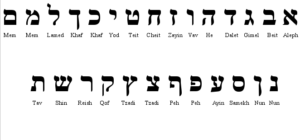
By Joe Lockard
Bestselling Irish novelist Sally Rooney has joined the boycott, divestment and sanctions movement by refusing an offer from Israel’s Modan publishing house to translate and publish her latest novel, “Beautiful World, Where Are You?” in Hebrew.
Rooney joins top-shelf writers such as Arundhati Roy, China Miéville, Junot Diaz and more. Alice Walker, commonly cited as a leading literary BDS supporter, actually published “The Color Purple” in a Hebrew edition in 1986 and over 25 years later refused to allow a new translation. Rooney made a similar antagonistic shift, for she had already published two novels in translation through Modan.
Sometimes there are conflicting messages, as when Viet Nguyen, who endorsed BDS shortly after winning the Pulitzer Prize, later posted a photograph on Facebook of himself holding up a new Hebrew translation of “The Sympathizer.” The late Henning Mankell, who was committed to the Palestinian cause, declared that his books would no longer be translated and sold in Israel, then later moved off this stand.
Literary BDS speaks to a willingness to close down communication with at least half the Jewish world and will come to little in the long run. Translation and its massive force in the global publishing industry is vastly more powerful than the refusal of any writer, or a group of writers, to permit translation of their work into a specific language.
Viewed in this global context, Rooney’s decision is not a moment of ethical clarity but of blindness. She refuses to see that translation speaks to readers, not to governments and their policies. If observation of human rights were Rooney’s true standard, then her list of translation editions would dwindle to a small handful of national languages whose deserving countries have commendable records.
The question of why Rooney permits Chinese translations of her work, considering the oppression being endured by the Uyghur and Tibetan peoples, remains relevant. Double standards speak toward discrimination and bigotry.
Somehow Rooney and other BDS supporters expect the diasporic half of the Jewish world to do nothing, or indulge a false political fantasy of widespread Jewish anti-Zionism that supports boycotting Israel. Quite the opposite can be observed. The spread of BDS antisemitism, especially in academic quarters, has provoked a strong reaction of intellectual and activist engagement with the renewal of antisemitism.
Much of this reaction has centered on recognition of BDS as a contemporary form of racism. The idea that the moral improvement and conversion of Jews can be effected through communal isolation and boycotting is perhaps the oldest form of organized racism in Western history. It birthed the ghetto.
This animating concept of BDS can be traced at least to medieval Europe and efforts to stigmatize, isolate and then destroy Jewish communities. BDS appropriates human rights rhetoric and marries it to a very old, repugnant idea in order to aim for no less than liquidation of the Jewish homeland.
Cross-cultural expressive forms such as literary translation, music and art are the antithesis of containment, which makes them a particular challenge to those who demonize Israel and demand its expulsion from global civil society.
Rooney and other proponents of targeted cultural rejection have forgotten that translation thrives despite political animosities and boycotts. It flows effortlessly over and around borders, prohibitions and copyright conventions (hundreds of unauthorized online translations of J.K. Rowling and J.R.R. Tolkien testify to this last point).
A long-retired colleague from Peking University recalled to me about how during the Cultural Revolution she and a couple friends made an unauthorized Chinese translation of Erich Segal’s 1970 romance, “Love Story.” There was no hope of publication for a text that would have been condemned as decadent bourgeois, anti-revolutionary American garbage. Despite the danger of denunciation and severe punishment, they circulated the novel in typescript copies and enjoyed themselves.
When China-U.S. relations were non-existent in the 1950s, Chinese translations of U.S. literature were substantially more numerous than before China’s 1949 Revolution. Numerous unauthorized Hebrew translations of Arab writers appeared in the 1950s and 1960s despite an official Arab League boycott. Joseph Brodsky and others produced Russian-language underground samizdat translations that percolated through the anti-Stalinist intelligentsia in the former Soviet Union to profound effect.
Translation into and from Hebrew will not slow or halt because of one writer’s well-publicized fiat. Hebrew remains borderless and a vigorous participant in global literary culture.
Joe Lockard is an associate professor in the English Department of Arizona State University. This originally ran in the Jewish News of Greater Phoenix.







great working